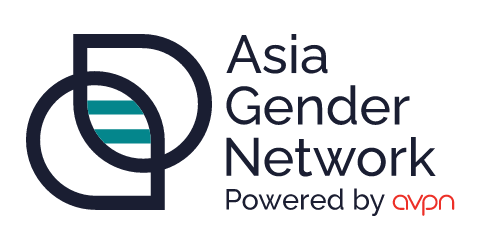Gender lens giving comes with a wide-ranging host of issues to address. To give them the proper care and consideration they require, we launched Gender Agenda — a podcast that takes a deeper and honest look at the concerns surrounding philanthropy and gender equality, hosted by Anita Kapoor.
Gender Agenda made its debut on 30 November 2023 and wasted no time diving into some hard-hitting issues with its first episode, “What are we missing?”. Fresh off the recent G20 New Delhi Summit, we explored what it really means to empower women — is it simply ensuring that more women are beneficiaries of financial aid and job opportunities, or does it go deeper than that? This episode, we examined the concept of women-led development, together with special guests Anne Sutanto and Kanta Singh.
A key takeaway from the G20 Summit was the need for a shift from women’s development to women-led development — to have more women in positions of decision-making power, instead of merely being beneficiaries. This is a stance Kanta, in particular, was pleased about, having seen how the topic of women’s contributions to the national economy had not been taken seriously enough up till this point. The new direction set by the Summit is one that Kanta strongly welcomes. However, while it is great that people are recognising the leadership qualities in women, Kanta questioned if they are getting the space to lead. She pointed out that even India’s Prime Minister himself drove home the point that no country can achieve its economic targets without the kind of leadership women bring to the table. Ultimately, women-led development is rooted in the core belief that women play an active role in shaping the destiny of any country.
On that front, Indonesia might just have a head start, according to Anne. She described the organisations there as respectful of women leadership, and talked about men and women being on equal footing. Rather, everyone, regardless of gender, is judged by merit and performance. While there used to be a quota system, Anne personally frowns on that — in some ways, they ironically set limits on the opportunities women get. But at the end of the day, she recognises its importance in raising the bar and setting benchmarks for gender equality.
Both women hope that other countries will get to this point as well, and talked about the G20 Summit Declaration as a promising first step. For Kanta, it is encouraging that there was an increased focus on marginalised women’s groups such as the LGBTQ community. She highlighted that two and a half pages of the Summit Declaration were dedicated to women’s issues including their leadership, continuous education, and entrepreneurship, and that she looks forward to seeing steps being taken to equalise the distribution of property and resources. Otherwise, in Kanta’s opinion, women can never be equal.
At the same time, Anne was introspective about the meaning of freedom and happiness for women. Anne adds an important point that equality and women’s rights do not always have to revolve around workplace and professional achievement. There are women who decide to find fulfilment in their homes and families, and that can look like equality too — a world where women get to consciously choose how they want to live.
Kanta agreed and added that education plays a big role in affording women that freedom of choice and agency. She highlighted that while India is advancing at a rapid speed, that hasn’t always translated across in terms of impact on women’s education. According to Kanta, 35% of young women are still out of educational institutions and while there has been progress, there is room for more improvement for these women.
The episode wrapped up with a reflection on the role of men in women-led development. Gender stereotypes have inflicted damage not just on women, but also on men who tend to be pigeonholed into the role of provider and are expected to refrain from emotion. Kanta discussed the need for unlearning these harmful stereotypes, and for both men and women to come together and openly share their pain. She also advocated strongly for men to speak up and not be mere spectators in the face of women’s suffering. Men also need to be able to share power with women, and create spaces for them to flourish. Sharing power doesn’t mean giving it away — it simply means building a conducive environment for the world to develop more holistically. This is a crucial step in the shift that needs to happen. While women play a significant role in their own advancement, this is fundamentally a movement that will require everyone to be on board and taking action.
Listen to the full episode and check out Gender Agenda on Spotify and Apple Podcasts.


